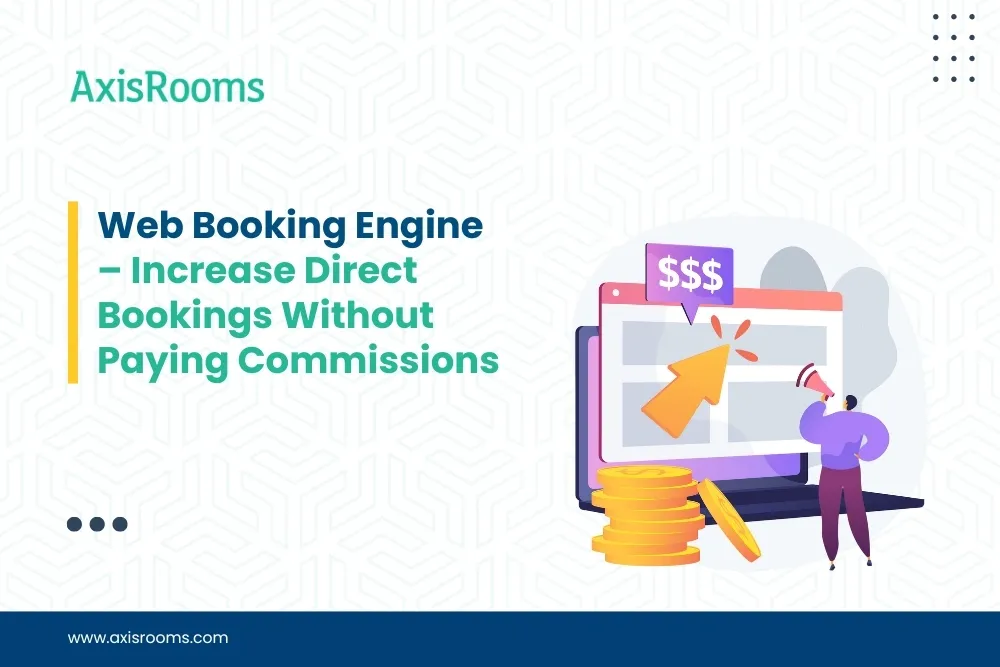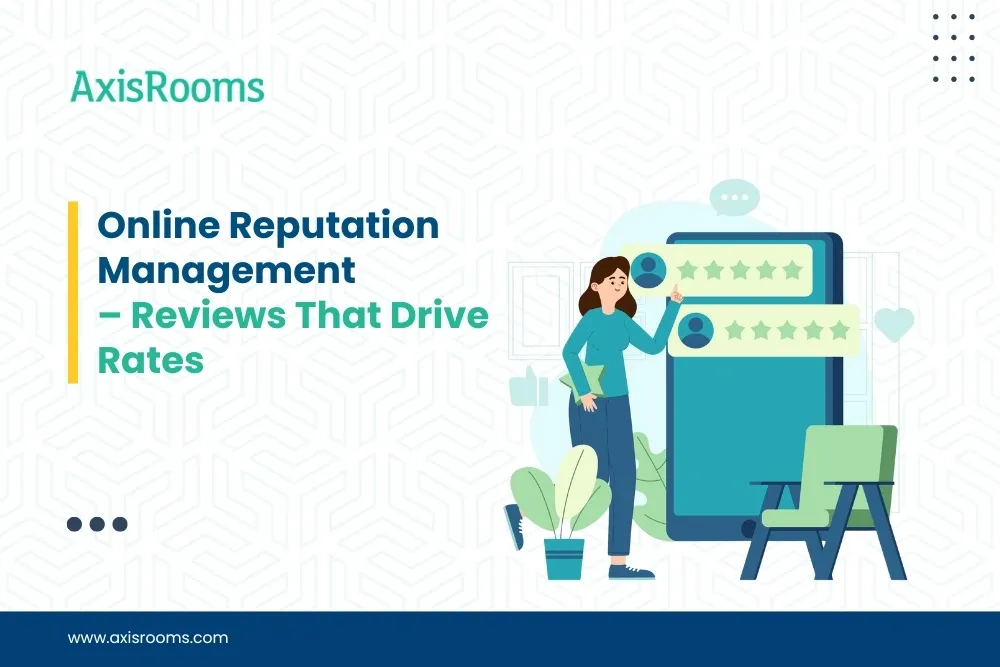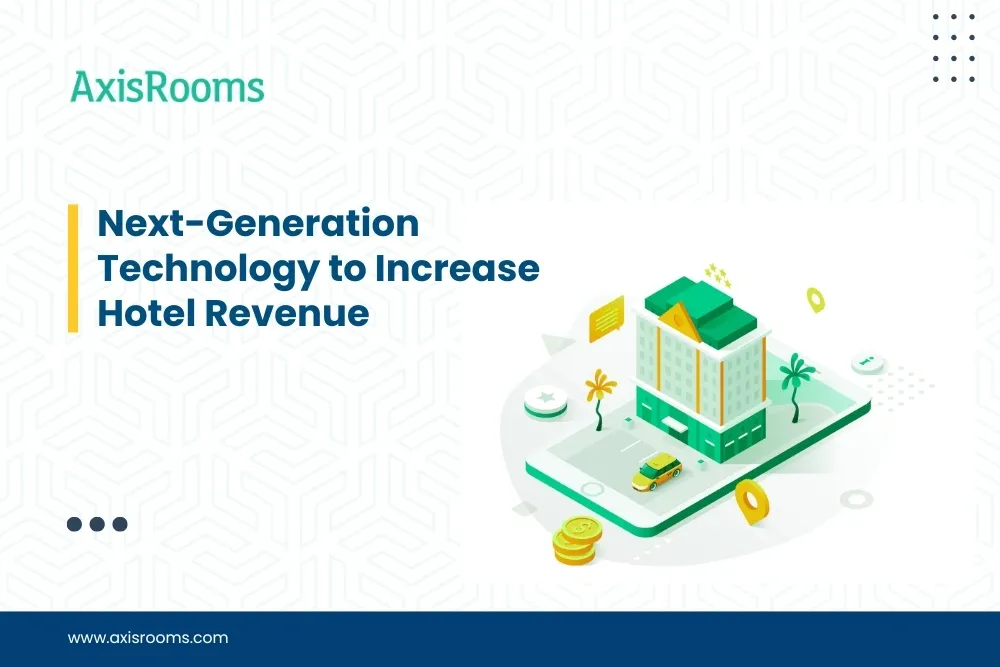Why Technology Is a Hotelier’s Strongest Revenue Lever
In today’s competitive hotel landscape, increasing revenue isn’t just about selling more rooms—it’s about using technology to sell smarter, reduce operational gaps, and elevate the guest experience.
Whether you run a boutique hotel, a mid-size property, or a multi-location group, relying solely on manual methods or disconnected systems will limit your potential. Revenue-boosting today requires a connected tech stack—driven by data, automation, and personalization.
Here’s a practical look at five essential hotel technologies that can directly impact your revenue in 2025 and beyond.
1. Channel Manager – Reduce Overbookings and Expand Online Sales
The Problem:
When rates and availability aren’t synced across all OTAs and metasearch engines in real-time, the risk of overbooking increases. Manually updating each channel also consumes staff time and leaves room for human error.
The Fix:
A channel manager automatically distributes your inventory and pricing across all connected sales channels, including OTAs, GDS, and your website.
Benefits for Your Revenue:
- Real-time updates avoid double bookings
- Maintain rate parity to build trust across platforms
- Maximize exposure on high-performing OTAs
- Reach new geographies and traveler segments
- Improve OTA ranking through reliable inventory sync
📌 Why it matters: Hotels using AxisRooms Channel Manager have seen OTA revenue increase by 25–30% within months of implementation.
Industry Insight: Despite the clear benefits, a recent study found that only 26% of hotels have fully adopted a channel management system, dropping to around 8% when excluding those using only basic free tools. The remaining 450,000+ hotels worldwide still rely on manual methods, leaving significant revenue on the table.
2. Web Booking Engine – Increase Direct Bookings Without Paying Commissions

The Problem:
While OTAs bring visibility, they also take a significant cut from your earnings. Relying heavily on third-party channels hurts your hotel profitability and limits access to guest data.
The Fix:
A web booking engine installed on your hotel’s official website allows guests to book directly with you—commission-free. The system displays real-time availability, rates, and packages and is available 24/7.
Key Advantages:
- No commissions = higher profit per booking
- Upsell meals, airport transfers, spa sessions, etc.
- Share promo codes with corporates or returning guests
- Own the guest data to build loyalty and re-engagement
- Enable group and agent bookings with negotiated pricing
📌 Use Case: Hotels that promote their booking engine with limited-time website offers report up to 35% more direct bookings seasonally.
Case Study: A boutique property in Thailand implemented an AI-driven booking engine and saw revenues climb 15% after just one year. The key was not just implementing the technology, but also training staff to leverage real-time data analysis to capture demand spikes and adjust pricing strategies accordingly. This aligns perfectly with what 81% of hoteliers believe: technology will be "very likely" more important for the success of hotel businesses in the next five years.
3. Revenue Management System – Sell the Right Room at the Right Price
The Problem:
Many independent hotels still rely on seasonal static pricing or competitor matching without understanding demand fluctuations or booking windows.
The Fix:
A Revenue Management System (RMS) uses real-time data, demand forecasting, booking behavior, and market trends to recommend optimal pricing—hourly, daily, or by segment.
The AxisRooms Revenue Management System simplifies complex pricing decisions by automating rate recommendations based on local demand, events, lead time, and competitor data. With built-in dynamic pricing capabilities and OTA integration, hotels can respond to market shifts instantly, optimize inventory, and improve RevPAR without manual intervention. It's an ideal solution for hoteliers looking to move away from guesswork and adopt a data-first approach to pricing.
4. Online Reputation Management – Reviews That Drive Rates

The Problem:
Online guest reviews influence purchase decisions far more than promotions or rates. One negative review, if unaddressed, can deter dozens of potential bookings.
The Fix:
An Online Reputation Management (ORM) system collects, monitors, and allows you to respond to reviews from TripAdvisor, Google, OTAs, and social media—all in one place.
Revenue Impact:
- A 1-star increase in review ratings = 4–5% rise in room rates
- Faster responses improve your service perception
- Consistent review management boosts OTA visibility and ranking
- Identify areas for improvement from real feedback trends
Tip: Train front desk or operations staff to act on ORM insights weekly and close guest complaints within 48 hours. This drives not just ratings, but also rebooking potential.
5. Hotel PMS – Tie Operations to Revenue Outcomes
The Problem:
Disjointed operations slow down check-ins, disrupt housekeeping, and create service delays—resulting in guest dissatisfaction and missed upselling opportunities.
The Fix:
A Hotel Property Management System (PMS) brings all core functions—reservations, housekeeping, guest profiles, billing—under one dashboard and ensures staff collaboration across departments.
📌 AxisRooms RMS Advantage
What sets AxisRooms RMS apart is its ability to seamlessly integrate with your Booking Engine, Channel Manager, and OTA integrations—giving you centralized control over pricing decisions and real-time distribution. For hoteliers aiming to reduce revenue leakage and respond faster to market shifts, this unified strategy offers measurable results.
Final Thoughts: Scale Revenue Through Smart Technology
Adopting new systems may seem daunting, but it’s no longer optional. To remain competitive, hotels must shift from manual processes to intelligent automation that enhances both guest experience and business outcomes.
Here's what every revenue-minded hotelier should prioritize:
- Start with foundational tools: PMS, Channel Manager, and Booking Engine.
- Layer on analytics: RMS and ORM give you a competitive edge.
- Ensure system integrations for seamless data flow and decision-making.
- Choose vendors with industry experience and proven onboarding support.
At the heart of a successful hotel revenue strategy is a well-connected tech stack. Without integration between booking, pricing, and distribution systems, revenue potential remains capped. But when your tools work in sync, they unlock far greater value than their individual parts.


